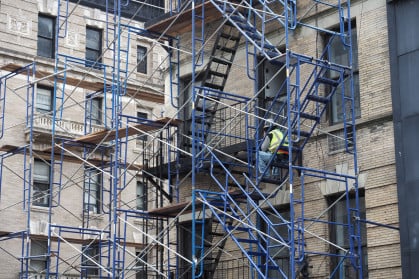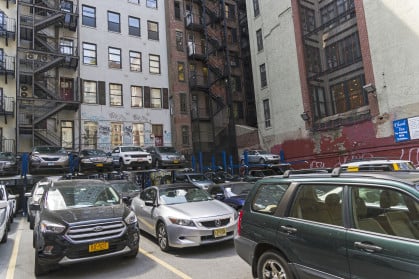NYC co-op and condo boards catch a break as Corporate Transparency Act faces legal limbo
- A lawsuit blocked the CTA, which would require boards to disclose some information about owners
- It’s unlikely the CTA will be enforced before the end of March unless the Supreme Court steps in

The Corporate Transparency Act requires NYC condo and co-op boards to file information about their beneficial owners with the U.S. Department of Treasury’s Financial Crimes Enforcement Network.
iStock
New York City’s condo and co-op boards entered the new year with some good news: Buildings don’t yet need to comply with a new, federal law meant to target money laundering.
The Corporate Transparency Act, which would require U.S. condo and co-op boards to disclose some information about building owners to the federal government, was put on pause again on Dec. 27th amid an ongoing lawsuit claiming the act is unconstitutional. As a result, NYC’s condo and co-op boards are temporarily off the hook.
But boards should stay prepared to get in line with the CTA’s requirements, if they haven’t done so already, said Andrew Freedland, a partner at law firm Herrick Feinstein. The U.S. Court of Appeals for the Fifth Circuit court will hear arguments about the case at the end of March, but there’s a chance the Supreme Court could take up the case sooner.
“If the Supreme Court doesn’t step in before March 25th, then we’re going to have to wait to see what the decision of the Fifth Circuit is,” Freedland said. “And that could come anytime after March 25th.”
Read on for what to know about the lawsuit, and what your board should do in the meantime.
Background on the case
A handful of businesses that would be covered by the CTA—among them a Texas tactical and firearm supplier, a dairy farm, and the Libertarian Party of Mississippi—sued the U.S. attorney general and a handful of other officials in May. These businesses argued that the CTA is unconstitutional because, among other reasons, it intrudes on state’s rights, and asked for a preliminary injunction blocking the CTA.
A judge for the Eastern District of Texas did just that—preventing the CTA from being enforced nationwide on Dec. 3rd. But in a surprising twist, a Fifth Circuit panel reversed that decision on Dec. 23rd after the government appealed, putting the CTA back in place with a new deadline.
But the legal flip flops didn’t stop there; a different Fifth Circuit panel reversed that decision again on Dec. 26th, halting the CTA for a second time.
As it stands now, NYC’s boards (and their lawyers) are waiting to see what happens in March, when the first arguments for the case are scheduled, or whether the Supreme Court will intervene.
“Everything has been stayed, and we know it’s going to be in that position for at least the next three or four months,” said James Woods, managing partner at Woods Lonergan.
So what should your board do?
The CTA requires that your board tell the U.S. Department of Treasury’s Financial Crimes Enforcement Network (FinCEN) who sits on your building’s board. If your board hasn’t done that already, you can voluntarily send in your report or wait until you’re required to do so.
The majority of Woods’ clients are holding their metaphorical horses, he said.
“Most of our clients are waiting, because there is certainly a scenario here—with the political landscape changing—that this law maybe does not survive this, or gets rewritten,” Woods said.
But both Freedland and Woods recommend being prepared to file if your board does decide to wait. (Freedland’s clients have mostly already complied with the CTA, he said.)
To get ready, your board should collect the information it may eventually need for its Beneficial Ownership Information report, including your condo or co-op’s legal name, taxpayer identification number, and current address. Your board of directors and anyone who owns at least a 25 percent interest in the company, such as your building’s sponsor, will also need to provide information including their names, address, date of birth, social security number, and a copy of a government ID.
Sign Up for our Boards & Buildings Newsletter (Coming Soon!)
Thank you for your interest in our newsletter. You have been successfully added to our mailing list and will receive it when it becomes available.




















